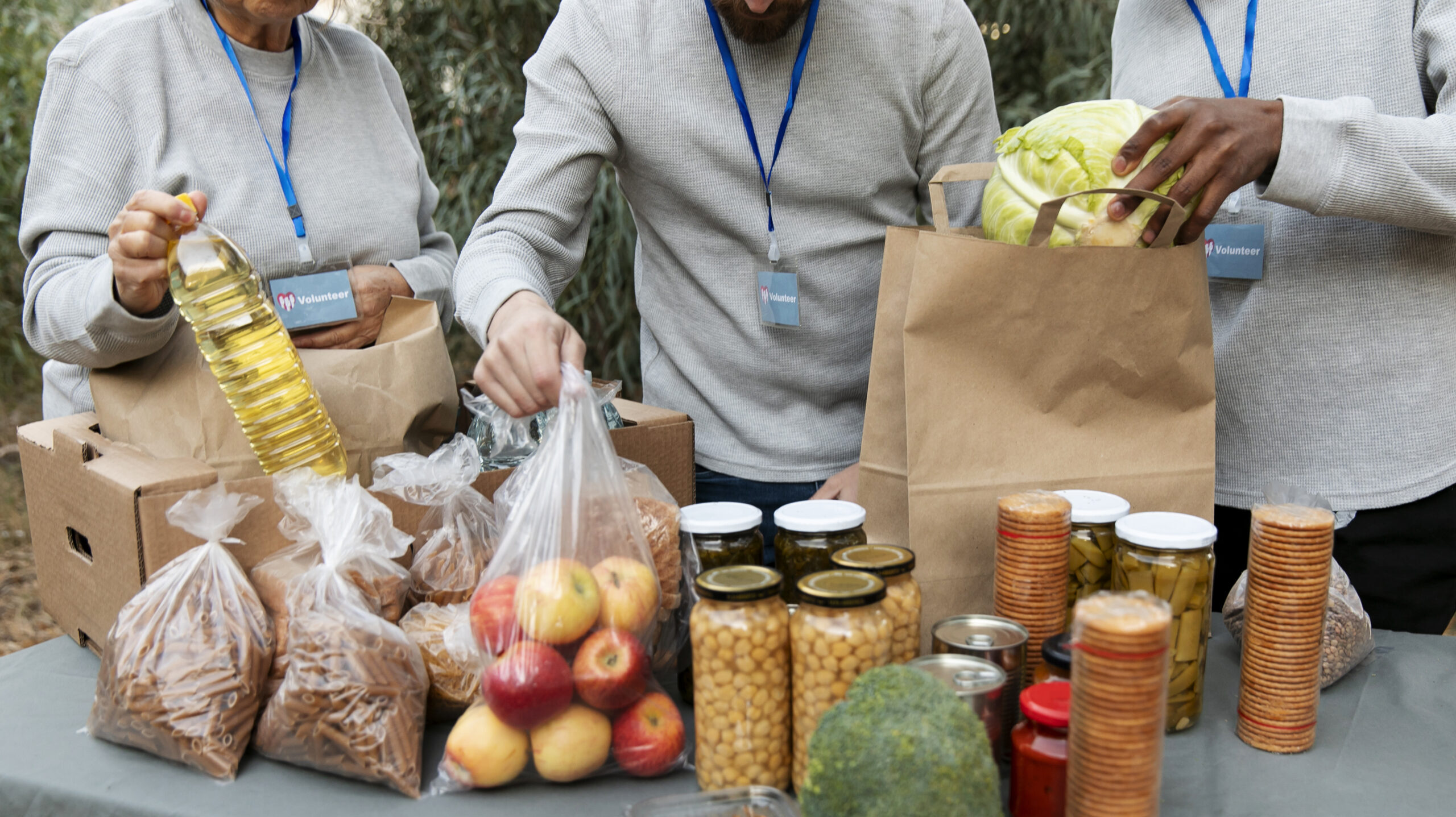Leket Succeeding To Rescue Food as Billions of Dollars of Edibles Wasted in Israel
During times of war in Israel, Leket provides sustenance by serving half a million meals through food preservation efforts
As the Israel-Hamas war rages on, and Israel continues to grapple with the physical and emotional scars inflicted by conflict, a lesser-known battle is looming beneath the surface—the war against food insecurity.
The Food Waste and Rescue Report, a collaboration between Leket Israel, the Environmental Protection Ministry, and the Health Ministry, brings to light a staggering reality that demands urgent attention.
In 2022, 2.6 million tons of food, valued at $6.5 billion (NIS 23.1 billion), were wasted in Israel. This represents a staggering 37% of the total food produced in the country. Meanwhile, 1.4 million people continue to suffer from food insecurity and lack consistent access to healthy food.
These numbers have significant economic repercussions, with excess health care costs due to food insecurity reaching $1.5 billion (NIS 5.2 billion), constituting 5% of Israel’s total national health expenditures.
Food insecurity in Israel is a phenomenon that is increasingly prevalent in recent years, and unfortunately, we expect it to rise even more in 2024
Ronit Andwalt, director of the Nutrition Division at the Health Ministry’s Public Health Department, stated that “food insecurity in Israel is a phenomenon that is increasingly prevalent in recent years, and unfortunately, we expect it to rise even more in 2024.”
According to Andwalt, “Food insecurity is often accompanied by choices of cheaper food, which generally include smaller quantities of essential food groups for a healthy diet: vegetables, fruit, whole grains, and proteins. As a result, food insecurity poses a risk factor for various health conditions, both in adults and especially in children.”
We’re looking at how to expand nutrition within the displaced people in hotels. … We provide them with something that is significant and important for their diet, for their nutrition.
To combat Israel’s food insecurity, Gidi Kroch, the CEO of Leket Israel, explained to The Media Line how his organization has been salvaging perishable produce that would otherwise be discarded. They distribute this rescued food to hotels, providing displaced families with a healthier snacking alternative compared to the less nutritious options they are currently consuming.
“We’re looking at how to expand nutrition within the displaced people in hotels because they’re eating a lot of food that the hotel prepares. And if they want to snack, they snack on Bamba and bagels. We provide them with something that is significant and important for their diet, for their nutrition. So, we’re delivering fresh produce, and we’re putting it in like stands, very nice stands, so it will also be attractive for them,” said Kroch.
“Let’s not forget meal purchases. We purchased over half a million meals since the beginning of this war. Half a million meals in three months,” he continued.
The war, with its devastating impact on Israel’s agricultural sector, is poised to exacerbate the already dire situation. With 30% of Israel’s agricultural areas situated in conflict zones, food loss is escalating due to a shortage of workers and restricted access to fields and orchards.
“Usually, a professional picker or harvester would pick around 700 to 1000 kg every day. And a volunteer can pick anywhere between 200 to 400 kg if he works a full day, depending on what he’s picking, and depending on the availability of the crop itself,” Korch said.
Since the beginning of the war, approximately one-third of Israel’s Thai workers, constituting an average of 20,000 to 25,000 individuals, have left the country. Additionally, Palestinian workers, comprising 40,000 of the professional pickers, are currently prohibited from entering Israeli territory. Consequently, Israeli farms are experiencing a daily shortage of 50,000 pickers.
War has displaced entire populations, increased the risk of food waste, and driven up agricultural product prices. In addition to the surge in inflation, Kroch highlighted a significant reduction in the cost of importing produce from abroad. This cost decrease is attributed to the war’s impact on workers and farms in Israel.
“If you’re looking at imports from overseas, that’s going to be a lot cheaper because the growth [overseas] is more in abundance. It’s cheaper to import right now at this point, that’s why the prices [of locally grown produce] have gone up in Israel,” he added.
However, in Israel, “there’s a scarcity of produce, so the demand is higher, and the prices are going up,” he noted.
Kroch emphasized that Leket is the sole food rescue organization representing Israel in the Global Food Banking Network (GFN) and achieves the highest annual food rescue rate.
The rescue [of discarded food] is about 32,000 or 38,000 tons annually. No one has a meal rescue program that rescues over 2 million meals annually
“No one has a cleaning program like we have,” stated Kroch. “The rescue [of discarded food] is about 32,000 or 38,000 tons annually. No one has a meal rescue program that rescues over 2 million meals annually. These are the numbers prewar. Therefore, we help GFN, and introduce more food rescue into their memberships,” added Kroch.
As Israel’s agriculture faces a monumental crisis, the interconnectedness of food security, health, and the environment has become increasingly apparent.
The eighth annual Food Waste and Rescue Report serves as a clarion call, urging policymakers and citizens alike to prioritize the establishment of a robust and comprehensive national system for food rescue.
Lana Ikelan is a recent graduate of the Hebrew University of Jerusalem and an intern in The Media Line’s Press and Policy Student Program.


